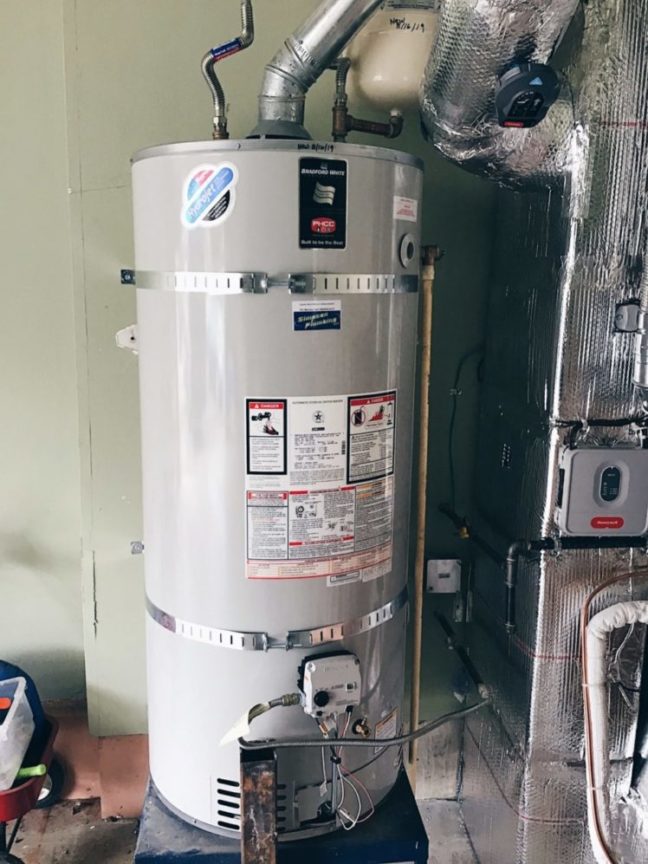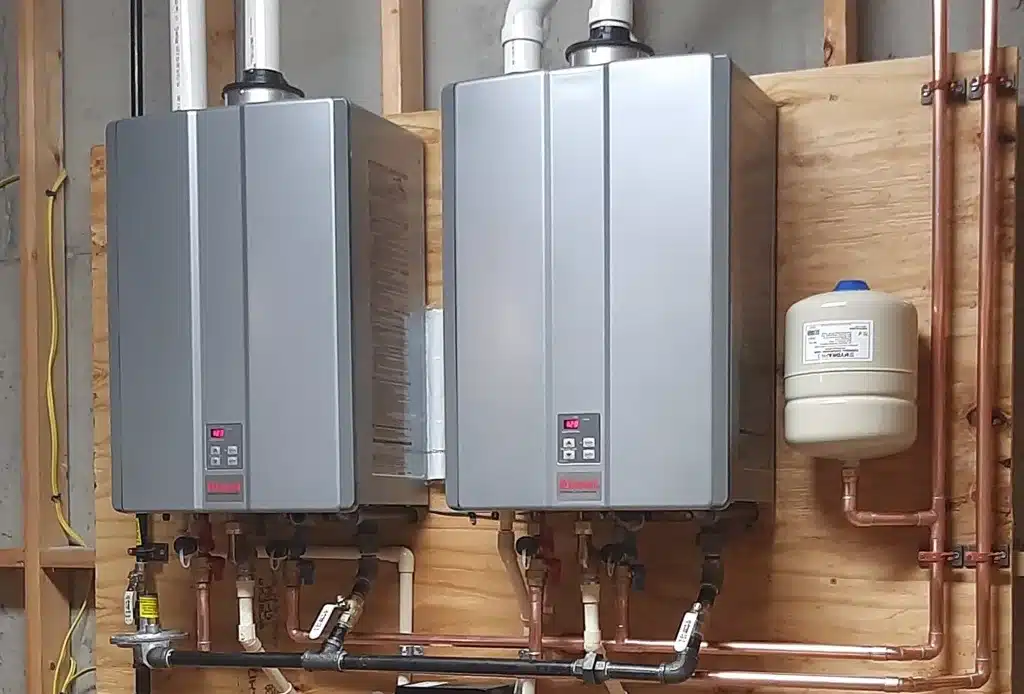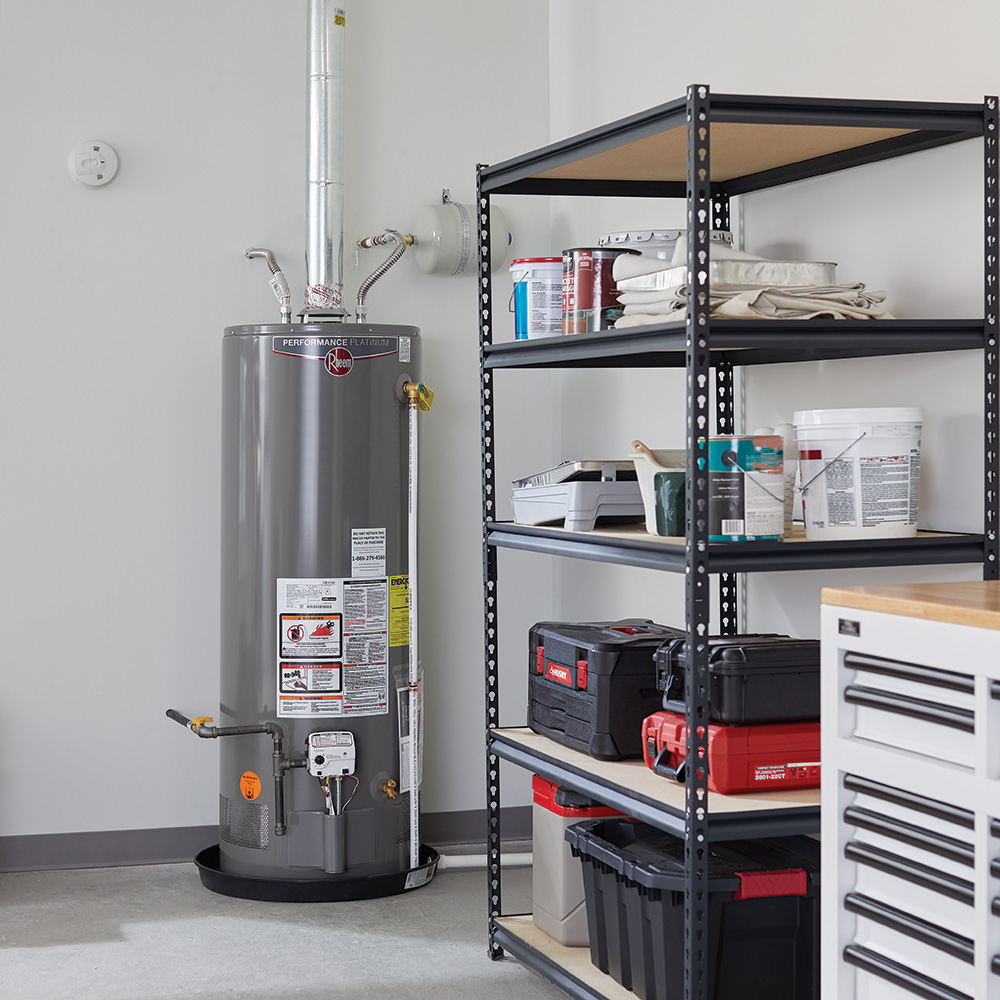Certified Gas Leak Repair for Your Safety and Assurance
Certified Gas Leak Repair for Your Safety and Assurance
Blog Article
Full Guide to Water HeaterSetup and Substitute
Recognizing the details of water heating system installment and substitute is critical for home owners looking for to make sure performance and integrity in their warm water supply. From choosing the proper kind and dimension to carrying out a seamless installation process, numerous variables need to be considered to stay clear of common mistakes.
Sorts Of Water Heating Units
When taking into consideration hot water heater setup and replacement, it is vital to understand the different kinds of hot water heater offered on the market. The most usual types consist of container hot water heater, tankless water heating units, heatpump hot water heater, and solar water heating systems.
Container water heating systems are conventional systems that keep a certain quantity of warm water, making them readily offered when needed. They are typically less costly in advance however might incur greater power costs over time because of warmth loss. In comparison, tankless hot water heater supply warm water as needed, getting rid of the need for storage space. They are power effective and can conserve room, yet their first expenses are typically higher.
Warmth pump water heating units make use of power to transfer heat from the air or ground to heat water, supplying substantial power savings but requiring even more space and specific setup problems. Solar water heating systems harness solar energy to heat water, supplying an environment-friendly choice with possible long-lasting cost savings, although they commonly call for a back-up system for gloomy days.
Understanding these alternatives ensures informed choices pertaining to installment and replacement, providing to particular requirements and choices.
Choosing the Right Dimension
Selecting the appropriate size for a water heating unit is crucial to make certain optimal efficiency and effectiveness. An unit that is too small will certainly have a hard time to satisfy household needs, bring about irregular hot water accessibility and enhanced power consumption. Alternatively, an oversized hot water heater can cause unnecessary energy waste and higher energy expenses.
To establish the right dimension, think about the home's height warm water usage. This can be calculated based on the number of residents and their typical warm water needs. A family members of four might require a water heater with a capability of 50 to 80 gallons, depending on the use patterns, such as synchronised showers and laundry.
Additionally, assess the recovery rate, which gauges exactly how swiftly a heating system can renew warm water after it has actually been made use of. For tankless models, concentrate on the circulation rate, measured in gallons per min (GPM), to guarantee it fulfills the house's synchronised demand.

Installation Refine Introduction

Following, the old device needs to be separated and removed, making sure to comply with regional codes and laws pertaining to disposal. As soon as the old unit is out, the brand-new water heater can be placed in place. This action includes attaching the water lines, guaranteeing that all installations are leak-free and secure.
After developing water links, it's vital to link the power supply, whether electrical or gas, following the supplier's instructions thoroughly. Once all links are made, the system should be loaded with water, and the power can be transformed back on. It's vital to check for leaks and make certain the water heater is working correctly before finishing the installment process.
Typical Installment Mistakes

An additional frequent mistake is ignoring to follow regional codes and laws. Failing to stick to these criteria can not only lead to safety dangers yet may likewise result in pricey fines or the requirement for pricey reinstallation.
Stopping working to secure connections or making use of the incorrect type of installations can lead to leakages and water damage. By avoiding these usual setup mistakes, homeowners can guarantee their water heating unit operates securely and effectively, taking full advantage of performance and long life.
Maintenance Tips for Longevity
Correct maintenance of a hot water heater is crucial for its longevity and ideal efficiency. Routine examinations and servicing can avoid expensive repairs and extend the home appliance's life expectancy. Begin by inspecting the temperature level setting; it should commonly be set in between 120 ° F and 140 ° F useful link for optimal power efficiency and safety and security.
Every six months, purge the tank to eliminate debris accumulation, which can harm heating effectiveness and cause rust. To do this, transform off the heater, attach a hose to the drainpipe shutoff, and let the water run up until it is clear.
When they are corroded,Anode poles should be evaluated yearly and changed. These rods assist prevent storage tank deterioration by drawing in harsh elements in the water.
Furthermore, check the stress alleviation shutoff on a regular basis to guarantee it is functioning correctly. This valve visit the website is crucial for preventing extreme pressure buildup within the tank.
Lastly, consider scheduling a specialist maintenance check every few years for complete examinations and maintenance. By sticking to these upkeep tips, homeowners can considerably improve the effectiveness, security, and life expectancy of their hot water heater, making sure trusted warm water for several years ahead.
Verdict
To conclude, correct installment and upkeep of hot water heater are important for making certain performance and durability (water heater installation). Selecting the ideal kind and dimension, adhering to setup guidelines, and avoiding common blunders dramatically add to ideal performance. Normal upkeep checks and specialist servicing help sustain capability and protect against costly fixings. By recognizing these crucial facets, homeowners can achieve a trusted warm water supply while minimizing potential concerns connected to water heating system procedure.
Comprehending the complexities of water heating system installation and substitute is vital for house owners seeking to ensure effectiveness and reliability in their hot water supply.Container water heating units are traditional systems that keep a particular quantity of hot water, making them conveniently offered when needed. In contrast, tankless water heating systems provide hot water on need, removing the need for storage. Picking a water heater that is either also tiny or also big can lead to inefficiencies, resulting in inadequate warm water supply or extreme energy intake.
By recognizing these vital elements, home owners can attain a reputable hot water supply while lessening possible concerns connected to water heater operation. drain cleaning.
Report this page